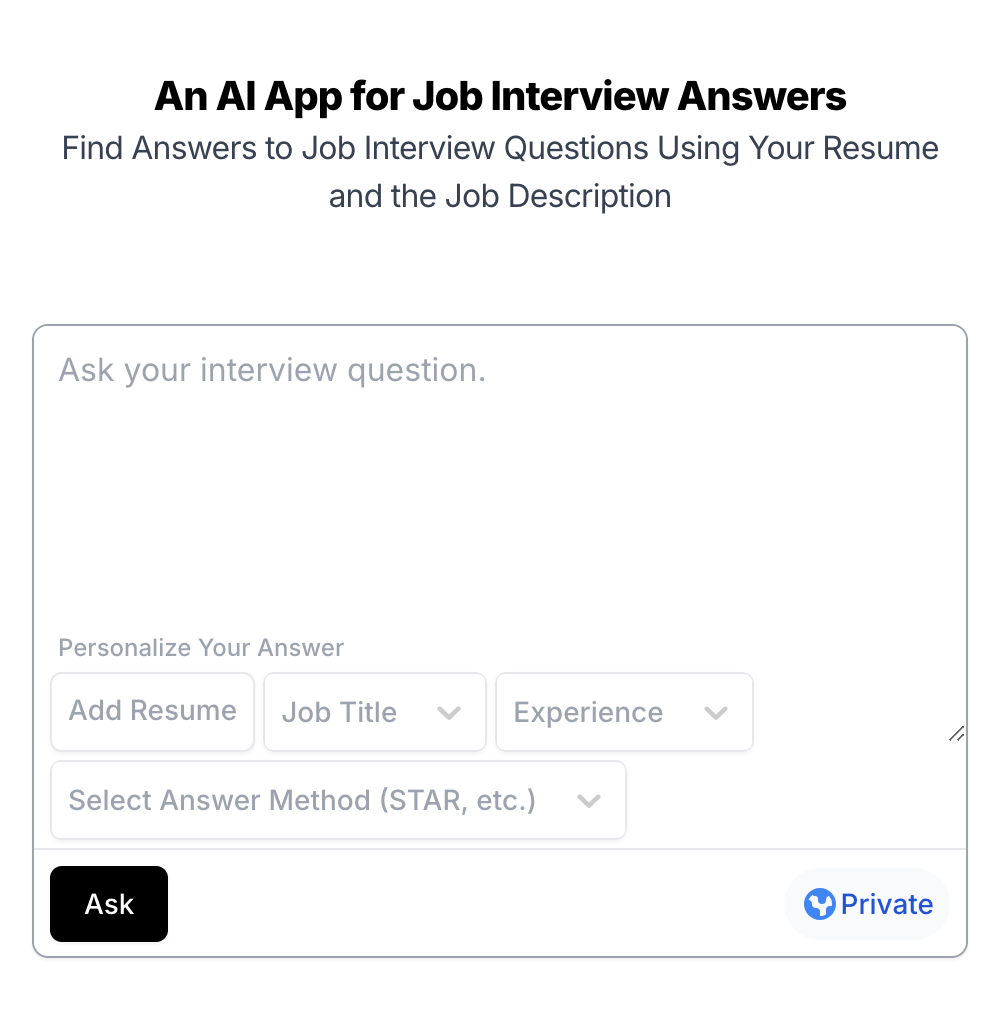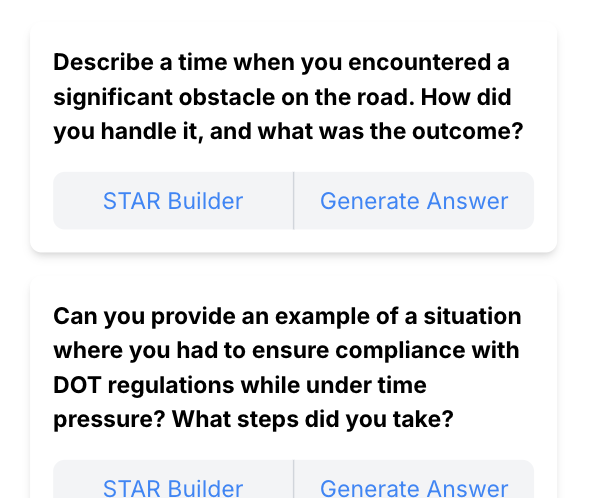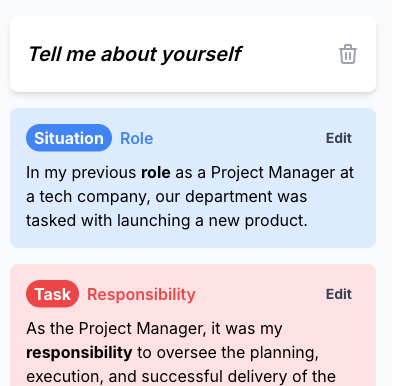
Background Interview Questions: What You Need to Know
Fri Aug 23 2024•Author: InterviewPro AI
Table of Contents
- What Are They?
- Common Examples
- Answer Length
- What to Avoid Saying
- Possible Follow-Ups
- More Follow-Up Questions
- When They're Asked
- Who Asks Them
- Why They Matter
- How to Answer Well
- Answer Structure
What Are They?
Background questions ask about your past experiences, education, and work history. Employers use them to learn about your qualifications and how they relate to the job. They want to understand your career path and how you've developed your skills.
5 Common Examples
- Can you tell me about your educational background?
- What was your role in your last job?
- How did you get into this field?
- What relevant experience do you have for this position?
- Can you walk me through your resume?
Answer Length
Keep your answer to about 1-2 minutes. This gives you enough time to share key points without going into too much detail. Your answer should highlight your most relevant experiences and skills.
What to Avoid Saying
Don't say these things when answering background questions:
-
Don't give irrelevant personal details Bad example: "I grew up in a small town and have three siblings." Why it's bad: This doesn't relate to your professional qualifications.
-
Don't speak negatively about past employers Bad example: "My last boss was terrible, so I quit." Why it's bad: This makes you look unprofessional and difficult to work with.
-
Don't lie or exaggerate Bad example: "I single-handedly increased company revenue by 500%." Why it's bad: Lies can be discovered and will damage your credibility.
-
Don't give vague answers Bad example: "I did a lot of different things in my last job." Why it's bad: This doesn't give the interviewer useful information.
-
Don't focus on unrelated hobbies or interests Bad example: "I spend most of my free time playing video games." Why it's bad: Unless it's relevant to the job, this doesn't help your application.
-
Don't share confidential information Bad example: "In my last job, I had access to all the company's financial records." Why it's bad: This shows you might not respect professional boundaries.
-
Don't ramble or go off-topic Bad example: "Let me tell you about my entire work history, starting from my first job as a teenager..." Why it's bad: This wastes time and doesn't focus on the most relevant information.
Focus on sharing relevant, professional information that shows why you're a good fit for the job.
Possible Follow-Ups
After you answer, the interviewer might ask more about your background. They could ask about:
-
Specific skills: They might want to know more about certain abilities you mentioned. Example: "You mentioned experience with project management. Can you give an example of a project you led?"
-
Job transitions: They could ask why you changed jobs or career paths. Example: "Why did you decide to leave your last position?"
-
Achievements: They might ask for more details about your accomplishments. Example: "You said you increased sales by 20%. How did you achieve that?"
-
Challenges: They could ask about difficulties you've faced in your career. Example: "What was the biggest challenge in your last role and how did you overcome it?"
-
Learning experiences: They might ask what you've learned from your past roles. Example: "What's the most important lesson you've learned in your career so far?"
5 More Follow-Up Questions
- "How has your education prepared you for this role?"
- "Can you explain any gaps in your employment history?"
- "What additional training or certifications have you pursued?"
- "How do you stay updated with industry trends?"
- "What aspects of your background make you unique for this position?"
When They're Asked
You might hear these questions at different times:
-
Application Process: You might answer basic background questions on the job application. Example: "Please list your previous employers and job titles."
-
Initial Screening: HR might ask background questions during a phone screening. Example: "Can you briefly describe your current role?"
-
First Interview: This is when you'll likely get most background questions. Example: "Walk me through your career path up to this point."
-
Later Interviews: You might get more specific questions about your background. Example: "How does your experience in X industry apply to this role?"
-
Reference Checks: Your references might be asked to confirm details about your background. Example: "Can you verify the candidate's job title and responsibilities?"
Be prepared to discuss your background at any stage of the hiring process.
Who Asks Them
-
HR Representatives: Example: "What's your highest level of education?"
-
Hiring Managers: Example: "How does your previous experience relate to this position?"
-
Department Heads: Example: "What specific skills from your background would you bring to our team?"
-
Potential Colleagues: Example: "What kind of projects have you worked on in the past?"
-
Company Executives: Example: "How has your career progression prepared you for this role?"
-
External Recruiters: Example: "Can you summarize your relevant experience for this job?"
Different people might focus on different aspects of your background depending on their role and what they're looking for.
Why They Matter
These questions help employers understand your qualifications and experience. They use this information to assess if you have the right skills and background for the job. Your answers show how your past experiences have prepared you for the role you're applying for.
How to Answer Well
- Be honest and accurate about your background
- Focus on relevant experiences and skills
- Use specific examples to illustrate your points
- Show how your background has prepared you for this role
- Highlight your achievements and growth
Answer Structure
Use this plan to organize your thoughts:
- Start with your most recent or relevant experience: Begin with what's most applicable to the job
- Highlight key responsibilities and achievements: Focus on what you've accomplished
- Connect your experience to the job: Show how your background makes you a good fit
- Mention any relevant education or training: Include degrees, certifications, or courses that apply
Background questions let you showcase your qualifications and experience. Use them to demonstrate why you're the right person for the job. Your answers help employers understand your career path and how you've developed the skills they need.
Can't find what you're looking for?
Try our AI-Powered Interview Preparation Tools
Prepare for your job interview with our AI tools. Tailored answers, custom questions, and STAR method responses.


